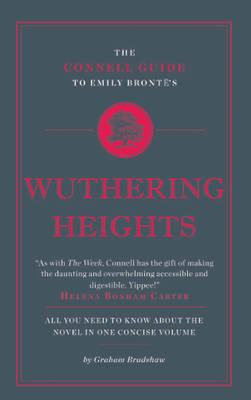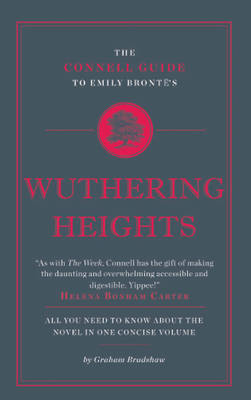
- Afhalen na 1 uur in een winkel met voorraad
- Gratis thuislevering in België vanaf € 30
- Ruim aanbod met 7 miljoen producten
- Afhalen na 1 uur in een winkel met voorraad
- Gratis thuislevering in België vanaf € 30
- Ruim aanbod met 7 miljoen producten
Zoeken
€ 12,95
+ 25 punten
Omschrijving
Wuthering Heights is one of the most written-about novels in the English language. Famous for the dark and passionate world Emily Brontë creates, and for the doomed relationship between Catherine Earnshaw and Heathcliff, it is a story which has almost become synonymous with romance, not just for Hollywood, chick lit writers and advertisers but for many who have read it and many more who haven't. Countless stories, films, television adaptations and magazine articles owe their origins or inspiration to Brontë's extraordinary story of love and death in the Yorkshire moors. Catherine's desperate avowal - "Nelly, I am Heathcliff" - has been described as the most romantic sentence in fiction. For all its later enormous influence and reputation, the novel was at first easily eclipsed in fame and critical renown by Jane Eyre, the more straightforwardly romantic novel written by Emily's sister, Charlotte, and the runaway bestseller of 1847. It wasn't until the early 20th century that critical opinion began to change, and in recent years the novel has been all but overwhelmed in a flood of criticism of all kinds, with Marxists, feminists and psychoanalysts all finding plenty of grist for their particular mills. So what is Wuthering Heights really about? Is it the Great Romantic Novel which so many readers, critics and film-makers assume it to be? What are we meant to make of Heathcliff, the lonely, violent man at the heart of Brontë's story? In this book Graham Bradshaw explores these questions and shows why Emily Brontë's novel remains such a vivid, subtle and resonant work more than 150 years after it was first published.
Specificaties
Betrokkenen
- Auteur(s):
- Uitgeverij:
Inhoud
- Aantal bladzijden:
- 136
- Taal:
- Engels
- Reeks:
Eigenschappen
- Productcode (EAN):
- 9781907776243
- Verschijningsdatum:
- 1/09/2018
- Uitvoering:
- Paperback
- Formaat:
- Trade paperback (VS)
- Afmetingen:
- 109 mm x 175 mm
- Gewicht:
- 154 g

Alleen bij Standaard Boekhandel
+ 25 punten op je klantenkaart van Standaard Boekhandel
Beoordelingen
We publiceren alleen reviews die voldoen aan de voorwaarden voor reviews. Bekijk onze voorwaarden voor reviews.











